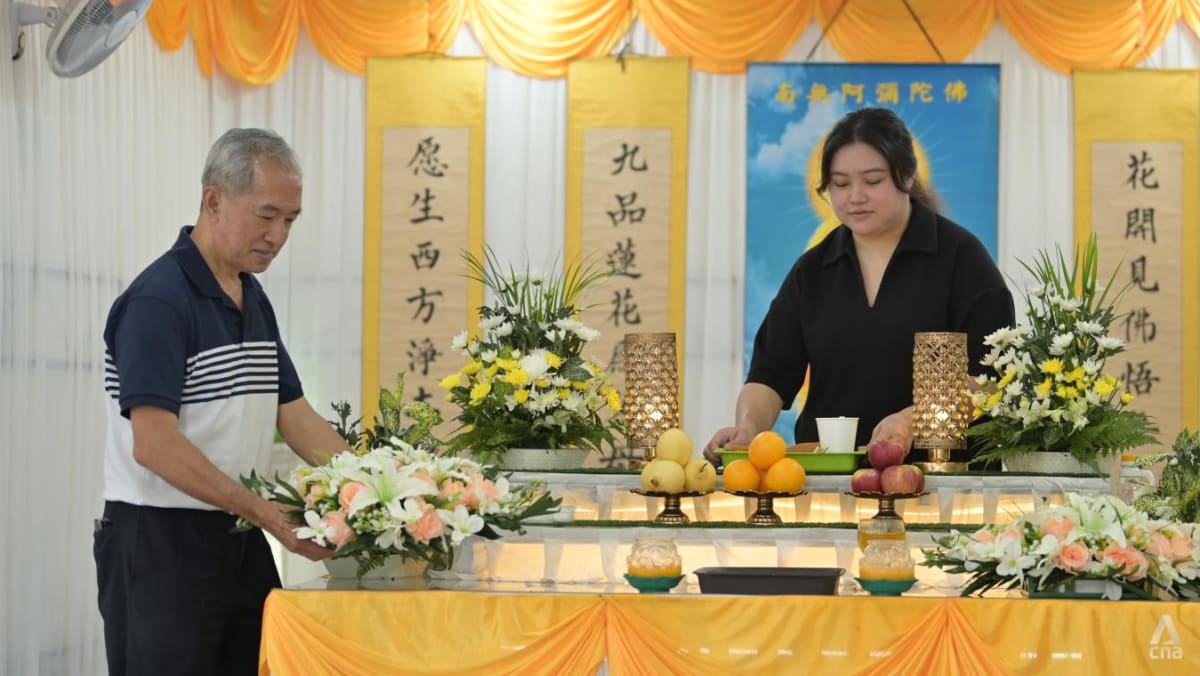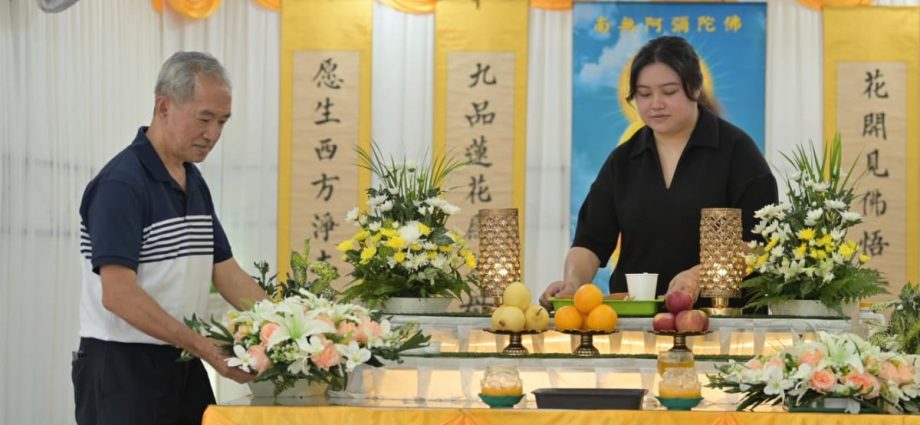
The manpower quota also means there needs to be a core of local workers before funeral firms can hire foreigners, he said.
The National Environment Agency (NEA) said last year there are at least 800 vacancies to be filled in the funeral industry over the next few years.
The shortfall in workers can be felt in the way the number of deaths is rising “but we don’t see a huge in-tandem growth of new blood coming into our industry”, leading to overwork, said Mr Hoo. Deaths in Singapore rose 10.7 per cent to almost 27,000 last year.
The problem is that “nobody really aspires to a career in the funeral industry”, he told CNA.
“In terms of raising the public perception, the negativity or some will call it ‘pantang’-ness of our industry, then that would really help,” he said, using the Malay word for taboo or superstition. “So they will see that this is a real profession that needs to be respected.”
While there is a gap in the market to fill, Mr Hoo, a funeral director who is the founder of Singapore Funeral Services, also cautioned against the idea of making a quick buck and profiting from the death care industry.
At the end of the day, there is “a demand on the service providers to do their job diligently and ethically, because it’s really a family we’re serving”, he stressed.
“YOU PASSED”
Having heard countless eulogies in her line of work, Ms Tan can easily name the top regrets of the living: Not being in time to apologise, and not spending enough time with the person who has died.
This hit home in 2018 when she bought her father surprise plane tickets to Jakarta to see his mother. Ms Tan’s father had told her that if he were to die suddenly, his top regret would be not spending enough time with her grandmother.
“When my dad told me this, I immediately wanted to solve it,” said Ms Tan. “It just hit me that even though we are in this industry, have we taken time out to reflect on our own regrets?
After her father left for Indonesia, she took on the business herself, but with the burgeoning workload, her father returned halfway through the trip.
“But I never regretted that decision, because that was also the last time my father saw my grandmother alive before she abruptly passed in 2019.”
After coming back from her grandmother’s funeral, her father thanked her for “jumping the gun” and “being impulsive”, she said.
It also changed their working relationship. Ms Tan’s learning curve went up “vertically” when her father first went away, and she realised how much he had been sheltering her from the demands of their work.
The next time her father left Singapore for her grandmother’s funeral, Ms Tan was prepared to hold the fort alone for four days. When her father returned, he went to get feedback from the families.
The verdict was relayed through Ms Tan’s mother, who told her: “You passed.”

